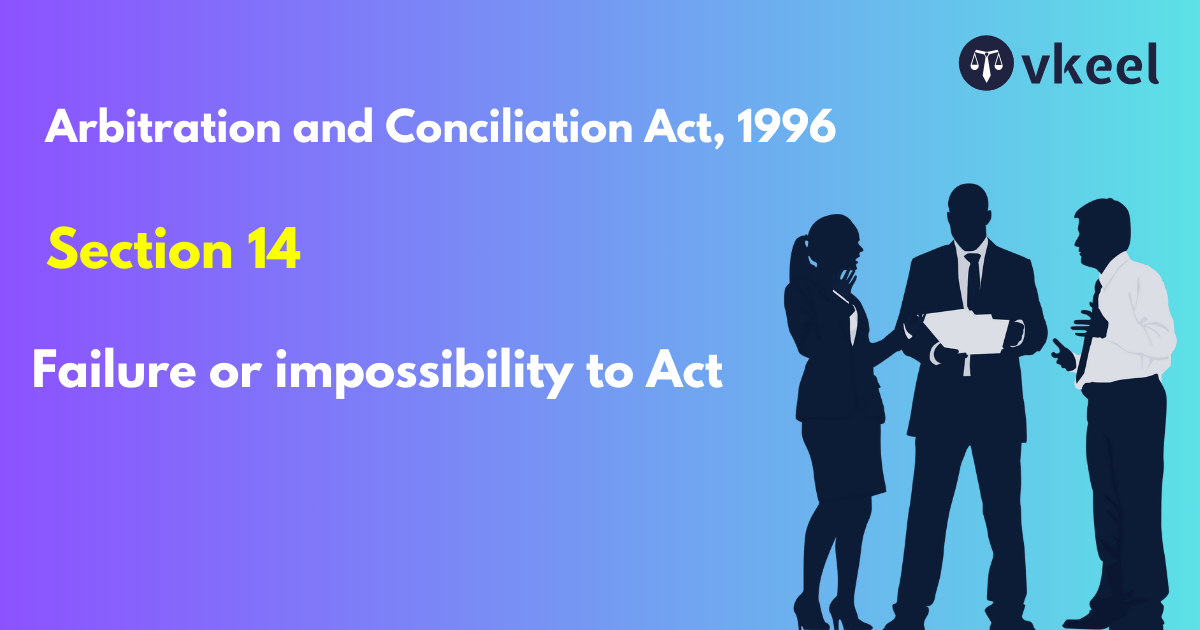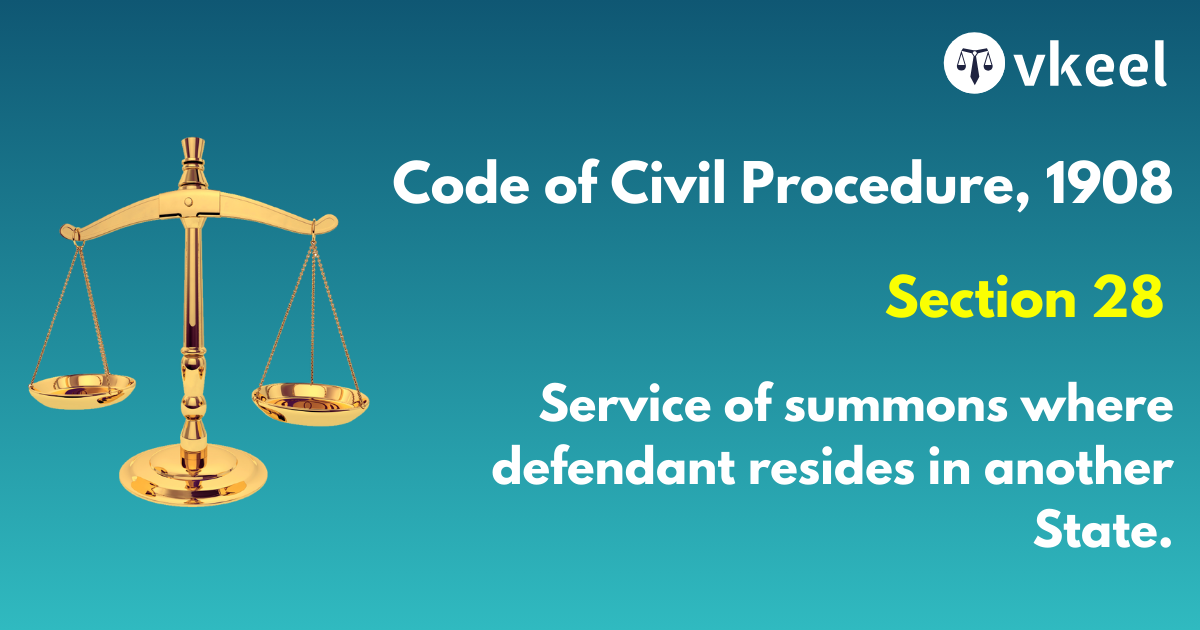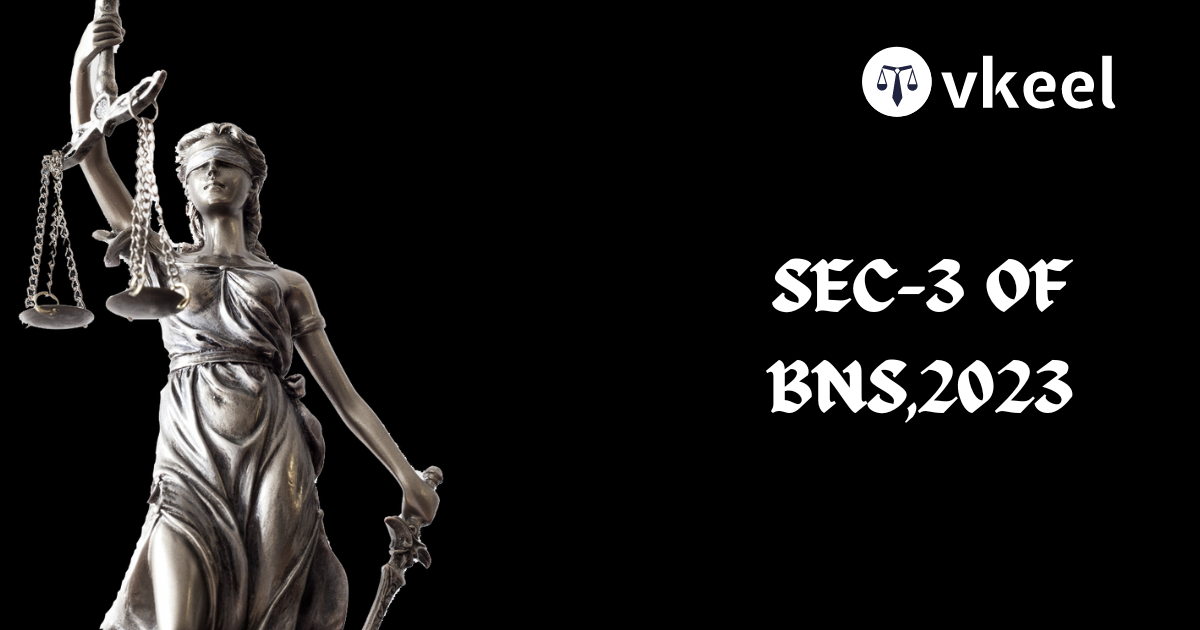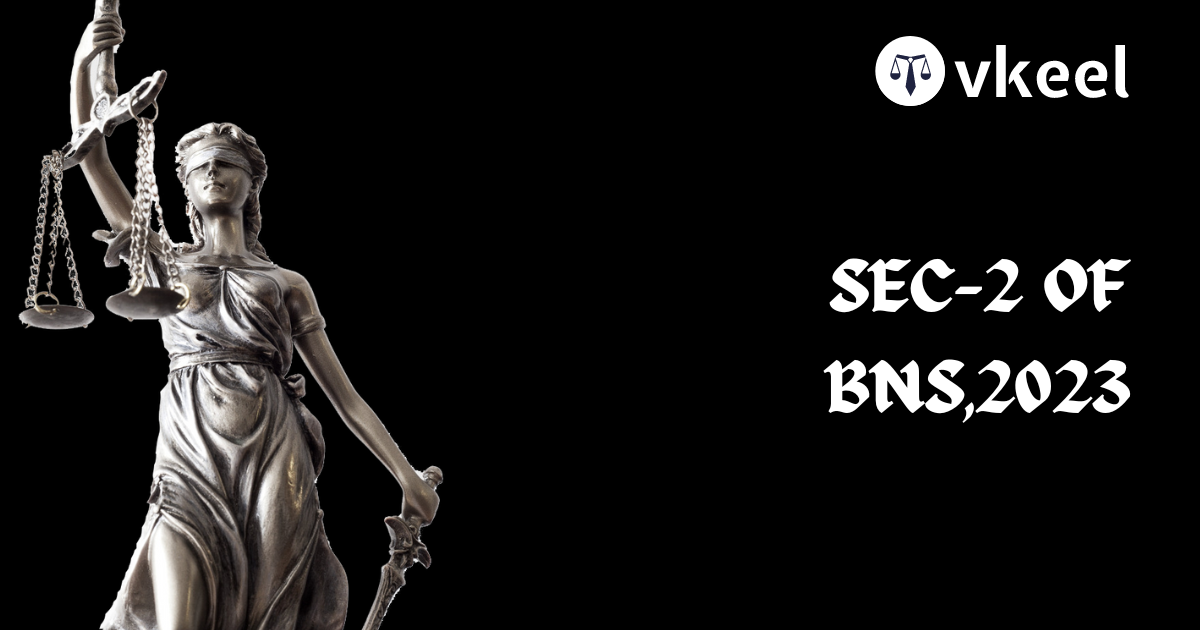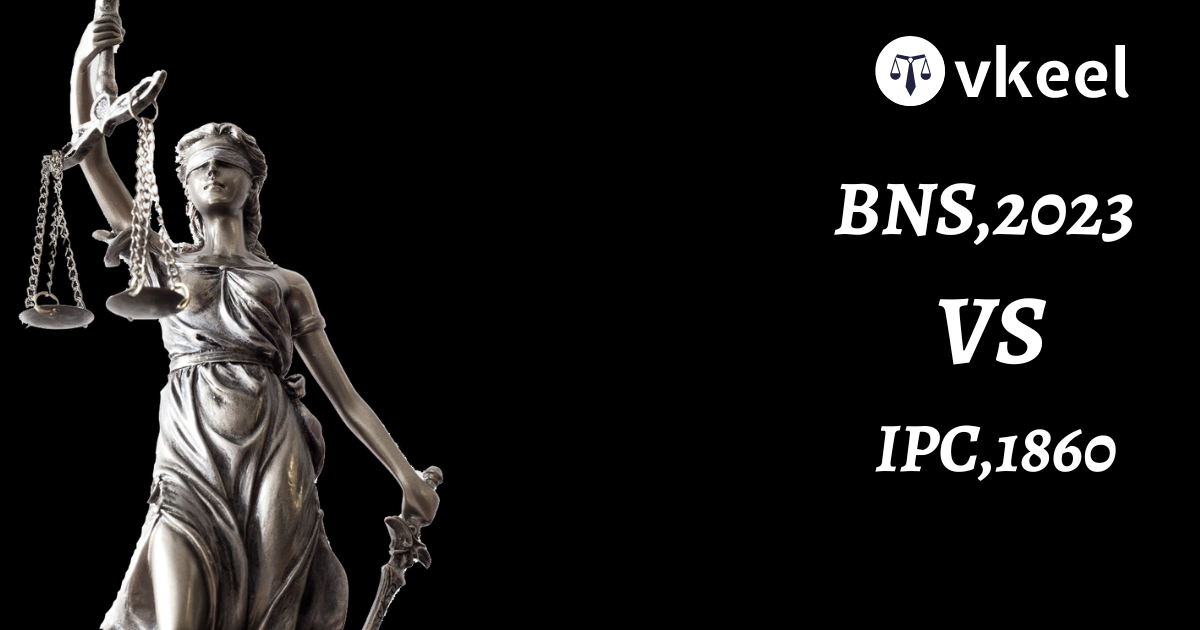Section 14: Arbitration and Conciliation Act, 1996
By Nivedita Dhiman
Table of Contents
Introduction
This section talks about the whole framework for arbitration in India and also deals with the termination of the mandate of an arbitrator. By virtue of provisions of this section, mandate of an arbitrator would terminate if he de jure or de facto is not able to perform his functions or for other reasons to fail to act without delay. Undue delay leads to the termination of the mandate of an arbitrator. In the case of controversy whether mandate of arbitrator stands terminated, a party can apply to the court to decide on the termination of mandate. This section outlines the circumstances under which an arbitrator’s mandate can be terminated before the arbitration proceedings are conducted.
Section 14 of Arbitration and Conciliation Act
Failure or impossibility to act.
(1) 1[The mandate of an arbitrator shall terminate and he shall be substituted by another arbitrator, if]—
(a) he becomes de jure or de facto unable to perform his functions or for other reasons fails to act without undue delay; and
(b) he withdraws from his office or the parties agree to the termination of his mandate.
(2) If a controversy remains concerning any of the grounds referred to in clause (a) of sub-section (1), a party may, unless otherwise agreed by the parties, apply to the Court to decide on the termination of the mandate.
(3) If, under this section or sub-section (3) of section 13, an arbitrator withdraws from his office or a party agrees to the termination of the mandate of an arbitrator, it shall not imply acceptance of the validity of any ground referred to in this section or sub-section (3) of section 12.
Landmark Judgements
T Srinivasa Rao vs UOI, 2009
Where the mandate of the arbitrator had been terminated with the consent of both the parties to the contract then in such a case there is no need on the part of the parties to approach the court for seeking termination of the mandate of the arbitrator because the mandate of the arbitrator can be effectively terminated by the parties themselves.
Delhi State Industrial & Infrastructure Development Corp Ltd. vs Integrated Techno Systems Pvt. Ltd.
Mandate of an arbitrator cannot be terminated on the ground that he was acting in a biased or improper manner or that he was not following the judicial discipline or he was acting arbitrarily by allowing an application for amendment of the claim or the written stringent and was transgressing his jurisdiction. These may be good grounds for challenging an award but cannot be the grounds for interfering during arbitral proceedings by the court.
In fact, there can be no interference by courts in on-going arbitral proceedings
Hasmukhlal H Doshi vs Justice ML Pendse, 2001
When a specific challenge is provided and the forum which has to decide the challenges is also provided, it would not be open to the court to decide and consider that the mandate of the arbitrator has been terminated. That challenge in a case where the arbitrator decides the question will have to be taken as a ground in a challenge to the award under section 34. The object seems to be to allow the arbitral proceedings to be concluded at the earliest. If the challenge is successful finally, the remedy is not lost as time is saved by virtue of section 43(4).
Earthtech Enterprises Ltd. vs NAFED, 2008
This section deals with mandate of an arbitrator and not with the jurisdiction of the arbitrator or the existence or non-existence of an arbitration agreement. Assuming that section 14(1)(a) became applicable and the mandate of the appointed arbitrator terminated, the only remedy available in such a case would be to appoint a substitute arbitrator in terms of section 15(2).
Conclusion
This section plays a crucial role in maintaining the efficiency of the whole process by providing guidelines for the termination of an arbitrator’s mandate in situations where the arbitrator is not able to perform the duties due to delays. This section effectively resolves disputes related to the termination of an arbitrator’s mandate.
Disclaimer:
The information provided in the article is for general informational purposes only, and is not intended to constitute legal advice or to be relied upon as a substitute for legal advice. Furthermore, any information contained in the article is not guaranteed to be current, complete or accurate. If you require legal advice or representation, you should contact an attorney or law firm directly. We are not responsible for any damages resulting from any reliance on the content of this website.

